There are differences between East and West as discussed below but we have a lot in common with the East as a basis for friendship and understanding as the photographs below show.
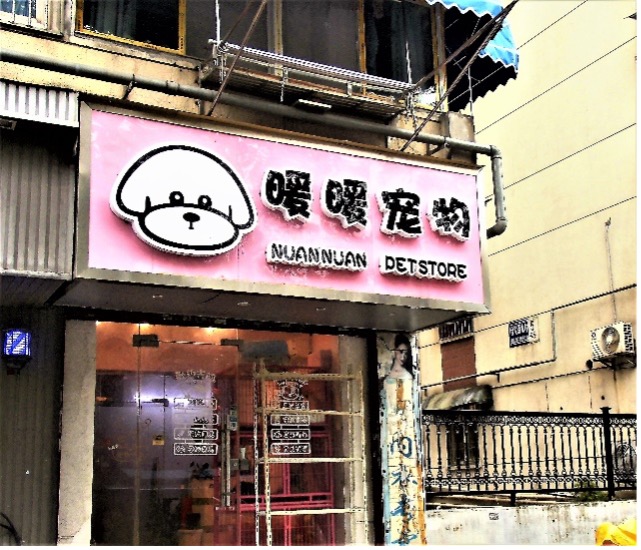
A pet shop in Nanjing 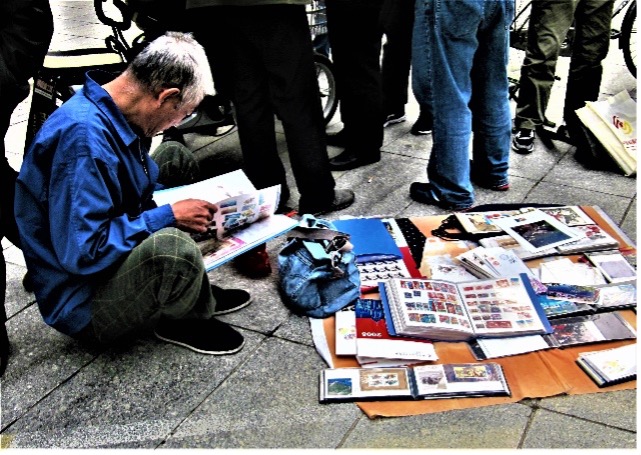
A stamp collector in Tianjin
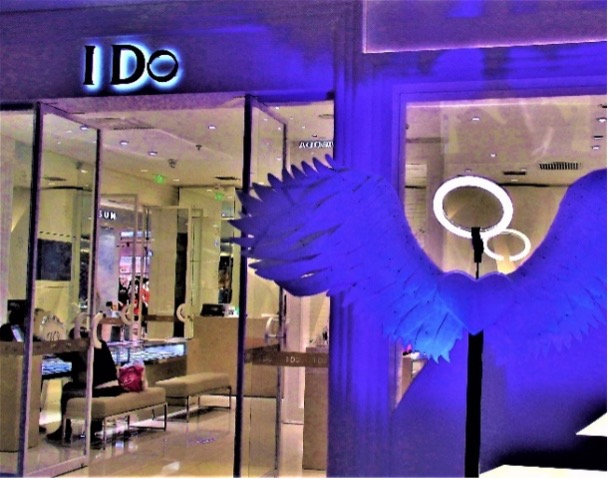
A wedding ring store in Yinchuan, Ningxia Province 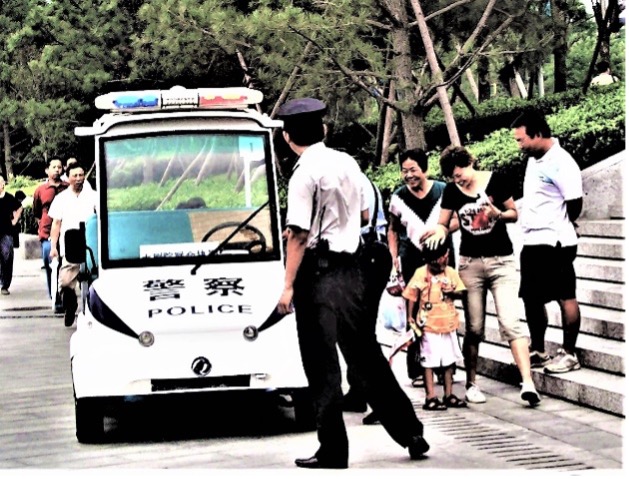
Family afternoon stroll in the park
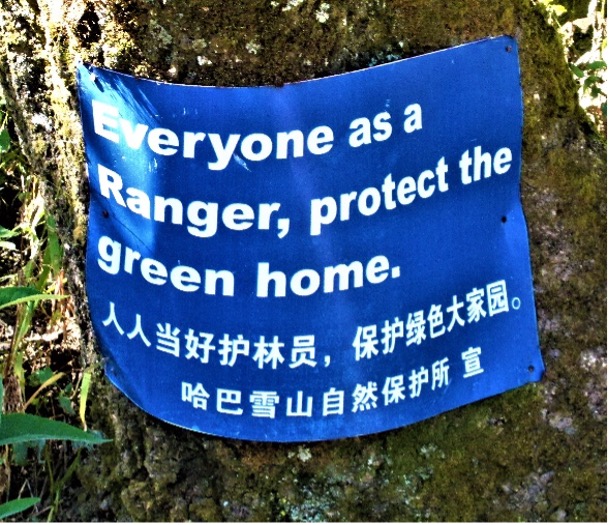
I bought a copy of the book East Side Voices edited by Helena Lee. It presents a wide spectrum of experiences and views from a variety of East and Southeast Asian individuals living in Britain. I have only ‘dipped’ into it so far, but can see some parallels with my own experience, although as a senior British Born Chinese, I am at least a generation removed from most, if not all of the authors.
About 15 years ago, I visited an old family friend. She said you are welcome to come, but I live in a typical ‘throw nothing away’ Chinese house. I immediately knew what she meant as my house and those of some of my Chinese relatives could be described in the same way. Gemma Chan in East Side Voices, was amazed when her dad offered her a Marks and Spencer plastic bag of 1990’s vintage. She later refers to her dad’s Golden Rule No 1, ‘nothing goes to waste.’.
The Chinese love for money and good food seems quite universal. Is it because, since time began, previous generations in old China were always short of these basic necessities? One of the main Chinese government’s priorities has been the eradication of poverty. Through the ages, China has had many disasters with millions of people starving to death. Historians of old China, recorded that the average peasant in old China, ‘lived on the brink of disaster’. A universal basic freedom, is freedom from poverty.
China Eye No 59, Autumn 2018 contained a report, entitled, ‘Is Yellow the New Blackface?’ This was a conference which discussed the under-representation of British Chinese and East Asians in the screen media. It was held at Blackburne House in Liverpool and was convened by Rosa Fong of Edge Hill University. Speakers included Lucy Sheen, and Diana Yeh (by DVD). David Yip (The Chinese Detective) sent a message of encouragement.
The reluctance to employ Chinese and East Asian actors in major roles is a cause for concern. But is seems it has always been the case. In the 1930, a film was made of Pearl Buck’s novel, The Good Earth. Although the internationally-known Chinese actress, Anna Mae Wong was eminently suitable for the starring role, it was given to a Western actress who was made up to look Chinese. No satisfactory explanation was given for this. Some film critics thought that Anna Mae Wong would never play a leading role, unless the leading man was also Chinese. It was unacceptable, at the time, for a Chinese lady to play opposite a white actor.
Richard Nisbett, a psychology professor compares how Asians and Americans think. (From an article by Hana R Alberts in Forbes, May 11 2009)
East Asians see things in context, whilst Westerners focus on the point in hand: the former are dependent, the latter independent; the former are holistic, the latter analytic. The social aspect to these differences is that Asians are collective, Westerners individualistic. Another interesting observation mentioned was that, Canadians predict that a stock whose value is rising will continue to rise, whilst Chinese tend to think that what goes up will come down.
Nisbett’s work is discussed by Ed Yong in New Scientist, March 2009. He presents a chart by Daphna Oyserman, a professor of psychology, Education and communication in the University of South California. A summary of the qualities of Easterners and Westerners are:
East; Collectivism; harmony, duty, context, hierarchy.
West; Individualism; private, self-knowing, unique, independent
George Soros in The Crisis of Global Capitalism, on page 95, makes the points that ‘Pure reason and a moral code based on the value of the individual are inventions of Western culture, they have little resonance in other cultures. For instance, Confucian ethics are based on family and relationships and do not sit well with imported concepts imported from the West’.
Professor Alan Macfarlane in Youtube videos makes certain important points. Macfarlane is a professor of anthropology at Cambridge University. The following comments are my understandings from his talks.
The West sees China through a distorting mirror. There are prejudices and views associated with an imperial past. Many analysts and reporters, even so called ‘experts’ and historians, know very little. They write ‘what they think they know’. Some have never even been to China. He recommends that people should go and see for themselves and meet the people. They should go and make friends with Chinese people and in this way get ‘inside’ and get to know them and the country in depth. Get to know and understand the language, customs and culture. He believes the Western media, including the BBC, tend to concentrate on negative news and aspects of China; Aljazeera, a little less so.
His view is that Western thought is moulded by a ‘binary’ approach, Chinese thought by comparison is a ‘quantum’ approach. He maintains that this is influenced by religion; Western religions have one single God, (Christianity, Judaism, Islam), whilst China has many; Confucianism, Daoism, Buddhism and ancestor worship plus many other gods. All beliefs merge and are tolerated, without any conflict.
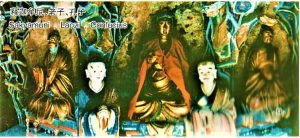
Whilst India has a caste system and England has social classes, there have never been such systems in China. Education has always been valued in China and determines social mobility and position in society in China. The basic social unit in the West is the individual. In China there are structured relationships between people, the family is very important.
Macfarlane has been to China 16 times in recent years. He invariably went with a Chinese student companion as a translator and was able to speak to people at all levels of society, from workers, civil officials, politicians, business people to university professors. He says he has been ‘transformed’ by his visits to China.
Recommended reading; Alan Macfarlane. China, Japan, Europe and the Anglo-sphere; A Comparative Analysis. Cam Rivers Publishing, Cambridge 2018
Additional comments:-
Some scholars hold the view that Western civilisation has its origins in Greek democracy, Roman law and Judeo-Christian religion. Chinese civilisation developed entirely separately and along different paths.
Some analysts believe that ‘white superiority’ influences Western thinking and is behind certain policies of the ‘Anglosphere’. Many believe socialism and communism are misguided, if not completely wrong ideologies and must be opposed, if this means covert action or even force. ‘Sinophobia’ is certainly present in our society, Sinophobia against which the recent SACU march demonstrated.
Some Western politicians, especially those in the Anglosphere, oppose the ‘Rise of China’. They justify this by claiming China does not play by international rules, is an autocracy, is ‘not like us’ and does not share our values. A senior US politician has declared, ‘Nations must choose between freedom or tyranny!’
Bertrand Russell, the philosopher, visited China in the 1920s. He commented, ‘In many ways the Chinese are the most civilised nation in the world and it is shameful that we make it our business to teach them lessons in barbarity’. A traditional Chinese proverb is, ‘Good iron is not made into nails. Good sons are not made into soldiers.’ This is in contrast to the Western military tradition, with royal sons festooned with military decorations. In the modern world of course, the PLA is necessary for national defence in a potentially hostile world.
Negative reporting of China is likely to increase as events develop. The security departments of certain Western countries are to be extended, specifically to deal with China.
The Belt and Road Initiative (BRI) has been criticised as producing ‘debt traps’. People fail to note that all agreements have been voluntary. ‘Cheque book diplomacy’ has been mentioned, but this is better than ‘gun boat diplomacy’. And not a single life has been lost in the BRI negotiations. Compare this with the hundreds of thousands – if not millions, of lives lost to European armies in Africa – competing for colonies and building empires. And, that continent was still horrendously poor after 300 years of Western involvement.
Walter Fung is Editor of SACU’s quarterly magazine China Eye. This article first appeared in China Eye, issue 74, summer 2022, pages 21-22.